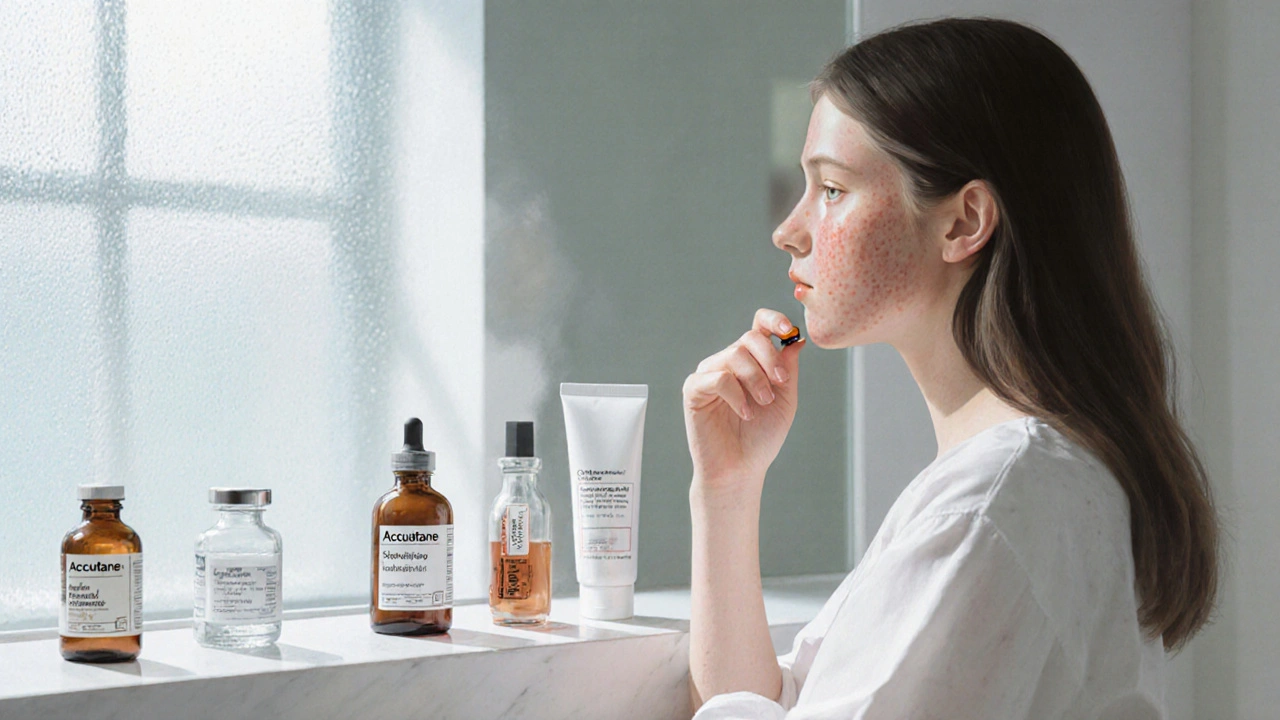Isotretinoin – Everything You Need to Know
When working with isotretinoin, a prescription drug that dramatically reduces oil production and clears severe cystic acne. Also known as Accutane, it belongs to the larger family of retinoids, which are compounds derived from vitamin A, a fat‑soluble vitamin essential for skin health and cell growth. In simple terms, isotretinoin works by shrinking the tiny glands that flood pores with oil, cutting down the bacteria that thrive there, and calming inflammation. That three‑part action is why dermatologists often call it the most effective oral acne therapy available. The drug’s power also means it isn’t for everyone; doctors weigh the benefits against possible side effects and monitor patients closely. isotretinoin can transform a struggling complexion into clear skin, but it also carries responsibilities that every user should understand.
Key Topics Covered
One of the biggest concerns with isotretinoin is its link to teratogenic risk, the potential to cause birth defects if taken during pregnancy. Because of this, strict pregnancy‑prevention programs are mandatory, and women of child‑bearing age must use two forms of birth control before, during, and after treatment. Aside from pregnancy concerns, common side effects include dry skin, chapped lips, and temporary vision changes, which most patients manage with moisturizers and regular eye checks. The dosage is usually calculated by body weight, and treatment lasts about four to six months, giving the skin time to reset. Throughout the course, blood tests track cholesterol and liver enzymes, ensuring the medication stays within safe limits.
Beyond safety, isotretinoin sits at the crossroads of several related topics that appear across our article collection. You’ll find pieces that break down acne, the skin condition marked by clogged pores, inflammation and sometimes painful nodules and explain why many standard creams fail on severe forms. Other posts compare isotretinoin to newer retinoid alternatives, helping you decide if a different option might suit your lifestyle. We also dive into the science of vitamin A metabolism, showing how isotretinoin’s synthetic structure mimics natural processes while delivering a stronger effect. Whether you’re curious about dosing strategies, looking for tips to combat dryness, or need guidance on the pregnancy‑registration program, the articles below give practical, up‑to‑date advice that matches real‑world needs. Keep reading to discover the detailed insights that will help you use isotretinoin safely and effectively.
Accutane (Isotretinoin) vs Alternatives: Pros, Cons & Best Choices
Compare Accutane (isotretinoin) with common acne alternatives, see efficacy, side‑effects, and how to pick the right regimen for severe acne.
© 2026. All rights reserved.

